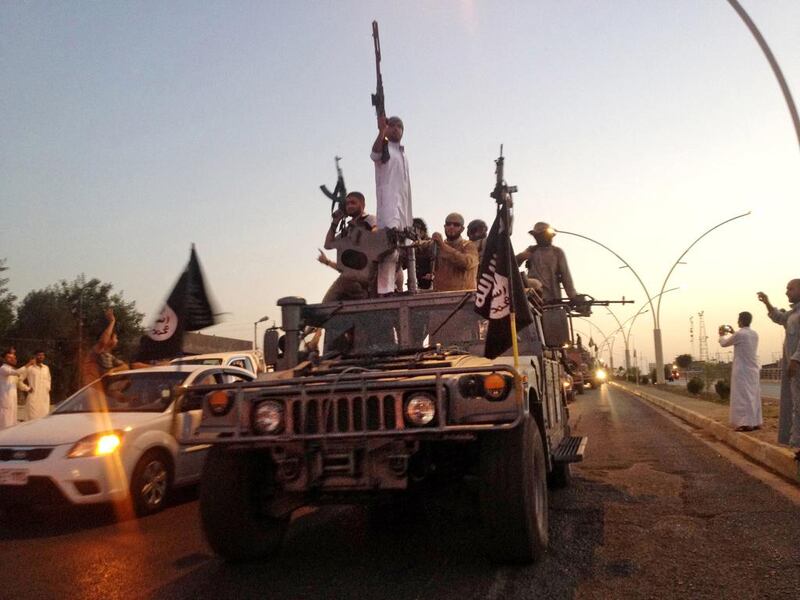Sheikh Qasim Sweidan Al Janabi, a prominent Sunni tribal leader, was ambushed this month along with his son and several bodyguards by armed men at a checkpoint in southern Baghdad. Their bodies were dumped near a bridge in a Shiite neighbourhood of the capital.
Sunni leaders blamed Shiite militias for the murder of Al Janabi, who had tried to promote reconciliation between Shiite and Sunni factions in Iraq.
Even if Shiite militias were not responsible for this attack, they are hindering efforts to reduce tensions and allow the central government to reassure Iraq’s Sunni minority.
In response to Al Janabi’s killing, dozens of Sunni members of parliament announced that they would boycott the legislature for at least a week, while Haider Al Abadi’s government investigated. But supporters of the militias argue they have been critical in driving back ISIL since the militant group routed Iraqi security forces in Mosul last summer.
Mr Al Abadi needs to assure Iraq’s Sunnis that he will be able to reverse the legacy of his divisive predecessor, Nouri Al Maliki. Sunni leaders have several demands: amnesty for thousands of Sunnis jailed by Mr Al Maliki, greater power in the new government and a significant role in the Iraqi security forces. Many Sunnis cringe at the memories evoked by the re-establishment of Shiite militias, which carried out widespread kidnappings, torture and killings during the sectarian war that raged in Iraq from 2005 until 2008.
A recent report by Human Rights Watch noted that as Shiite militias carried out new offensives against ISIL, they have escalated their abuses in Sunni areas. The militias have been accused of forcing thousands of Sunnis out of their homes, kidnapping or detaining hundreds of residents and summarily executing 72 civilians in Diyala province.
In December, Mr Al Abadi pledged to bring “all armed groups under state control. No armed groups or militias will work outside or parallel to the Iraqi Security Forces”.
But so far he has failed to live up to that pledge and, by some accounts, the militias are now the dominant military force fighting ISIL.
Many of the Shiite militias depend on Iran for weapons, funding and training. Since ISIL swept through northern Iraq in June, Tehran has mobilised to protect the government from the militant threat. Gen Qassim Suleimani, commander of the Quds Force of the Iranian Revolutionary Guard Corps, travelled to Baghdad at the start of the crisis to coordinate the defence of the capital with military officials.
Gen Suleimani also directed Iranian-trained Shiite militias – including the Badr Brigade and the League of the Righteous – in the fight against ISIL. With a weakened and corrupt Iraqi military, the militias have proven crucial in stopping ISIL’s advance.
Grand Ayatollah Ali Al Sistani, one of Iraq’s leading clerics, has also emerged as a significant force. He represents the dominant theological school in the Iraqi holy city of Najaf and has seized a direct political role on several occasions.
But he has never stepped into the political process as forcefully as he has since the fall of Mosul in early June. Three days after Mosul fell, he issued a call to arms urging all able-bodied Iraqi men to join the security forces against ISIL.
The response was immediate. Tens of thousands of Shiite volunteers showed up at recruiting centres to sign up for the Iraq security forces, or the militias.
Even though he urged Iraqis to fight under the command of the central government, the Shiite militias quickly took centre stage.
The militias’ growing strength threatens to undermine Mr Al Abadi’s authority and one of his most important goals: to assure Sunnis that the central government will protect their interests. If he cannot restrain the militias, then Iraq will be doomed to more sectarian bloodletting.
Mohamad Bazzi is a journalism professor at New York University and a former Middle East bureau chief at Newsday
On Twitter: @BazziNYU





